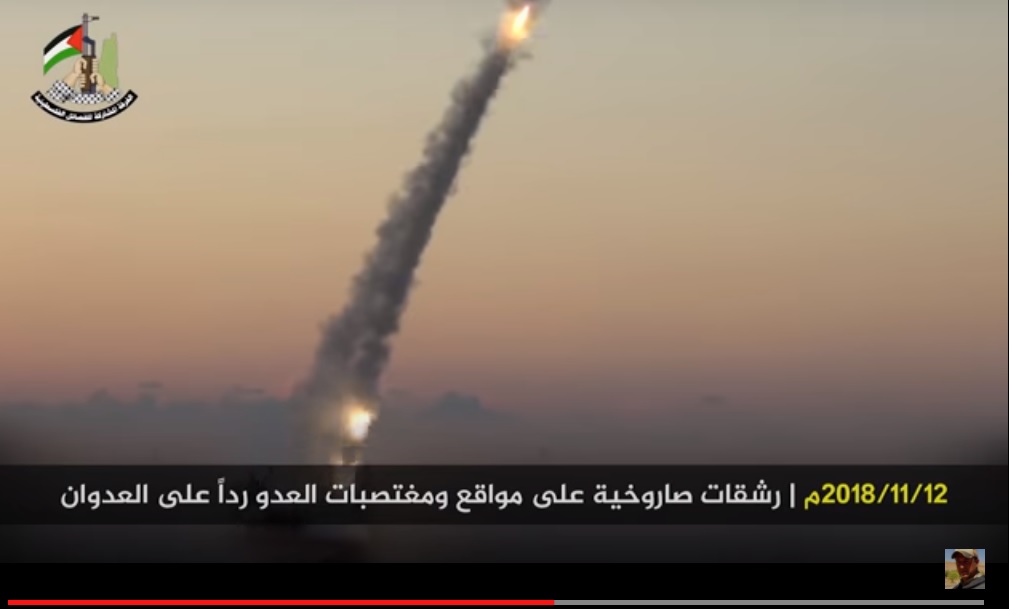Operation “Shield and Arrow” ended after five days with the mediation of Egypt, a ceasefire was reached after more than 1200 rockets were fired at Israel during the round of fighting.
During the operation, 33 Palestinians and one Israeli civilian were killed, Israel took the initiative, launched a preemptive strike and killed 6 senior members of the Islamic Jihad’s military wing who were the top of the organization, as a result of which the management of the fighting was transferred to the leadership of the Islamic Jihad abroad.
Israel did not give up on the new policy it adopted of targeted assassinations in the Gaza Strip and the Islamic Jihad had to settle for a vague wording of the ceasefire agreement agreement that allows Israel to continue this policy.
Egypt once again proved its mediating capabilities between Israel and the terrorist organizations in the Gaza Strip and prevented a security deterioration that would destabilize the region.
Officials in the Islamic Jihad claim that the organization decided to switch to a new tactic of fighting against Israel following the elimination of its military elite by the IDF and Shin Bet.
The Islamic Jihad surprised Israel in that immediately after the assassination of 3 senior members of its military wing, it remained silent and did not immediately respond by firing rockets at Israel, as it did in previous cases, but waited until after the funerals of the three and responded by firing rockets only after 30 hours in an attempt to undermine the Israeli morale
Then the Islamic Jihad tried to drag Israel into a long round of fighting of attrition after estimating that the Israeli political echelon was interested in a quick end to the round of fighting, therefore the round of fighting was prolonged and lasted for 5 days.
The response to Israel’s preemptive strike on the military elite of the Islamic Jihad was also aimed at Israel depth by launching rockets into the Gush Dan area and the Jerusalem mountains, a move that surprised Israel.
According to the assessment of the Israeli security establishment, the Islamic Jihad organization only has about 4000 rockets, therefore it refrained from continuously launching rockets towards Israel, from time to time it launched several rocket barrages in order not to waste the stockpile of rockets in its possession.
The military wing of the Islamic Jihad announced on May 13th that it had prepared itself for a battle of several months, but in the end had to agree to a ceasefire.
Israel prepared for at least a week of rocket fire towards its territory, the assessment in Israel was that the Islamic Jihad aims to disrupt the parade of flags in Jerusalem next Thursday by firing rockets under the title “The Battle on Jerusalem” in the assessment that the Hamas organization will no longer be able to ignore what is happening and come down from the fence to join the battle .
Senior officials in the Islamic Jihad claimed that Israel’s “Shield and Arrow” operation had a political purpose and was intended to allow Prime Minister Netanyahu to achieve achievements in the political arena in order to improve his situation in the public opinion polls and therefore ordered the IDF to launch the operation, they ignored the fact that the operation was a response to the fact that the organization a few days ago fired 100 rockets at Israel after the death of Hader Adnan in the Israeli prison following his hunger strike and after he refused to receive medical treatment.
The Islamic Jihad claimed that its new tactics were the result of learning lessons from the previous rounds of fighting against Israel, although Hamas officially sat on the fence, the Islamic Jihad claimed that the Hamas movement is a member of the joint coalition of the Palestinian factions that runs the battle and is a full partner In making the decisions and providing logistical assistance to the Islamic Jihad.
The Islamic Jihad hardened its positions in the negotiations on the ceasefire in coordination with Iran, which promised it a lot of funding and the restoration of its military capabilities, with the assumption that eventually Israel would be forced to agree to stop the policy of targeted assassinations.
Ziyad Al-Nakhallah, Secretary General of the Islamic Jihad, was in regular contact with General Hussein Salami, commander of the Revolutionary Guards.
of Iran, he updated him on the developments in the field and received instructions from him for the continuation of the fighting.
The ceasefire and Israeli deterrence will be put to the test in the coming days at the “Nakba Day” events and the parade of flags in Jerusalem.
Israel demonstrated clear operational and intelligence superiority over the Islamic Jihad, it managed to isolate the military confrontation against it, the Hamas movement sat on the fence and the axis of resistance led by Iran had difficulty uniting and attacking Israel from additional fronts as happened in the month of Ramadan.
Security calm was maintained in the Arab sector of Israel and in the mixed cities where Jews and Arabs live together.
Israeli success is not a guarantee of what will happen in the future, the axis of resistance led by Iran has not given up its plans to tighten the strangulation ring around it from several fronts by firing tens of thousands of rockets, missiles and drones, Israel will soon again face new challenges against the Palestinian terrorist organizations.




